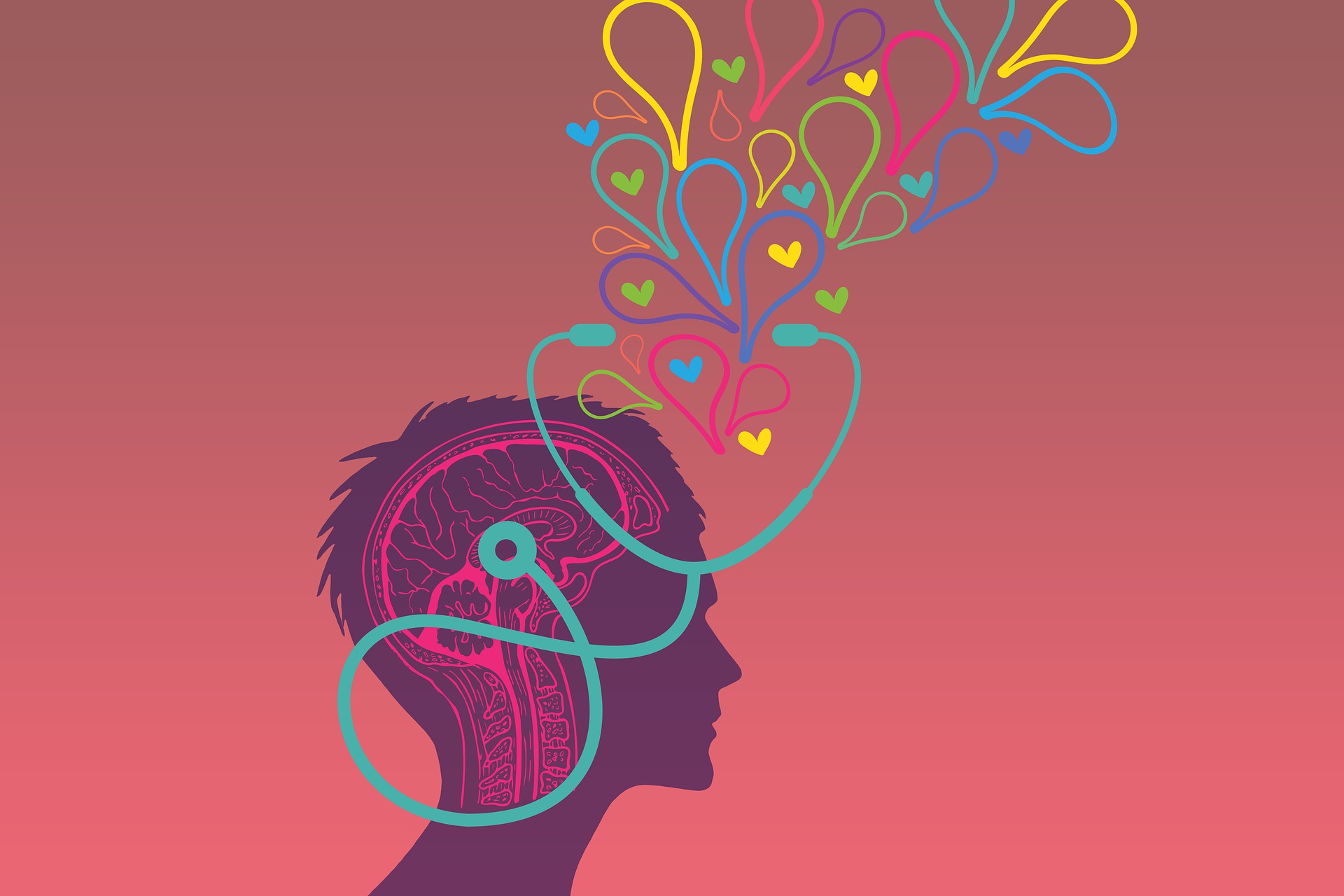Our cognitive capacity forms as we grow. The older we get, the further our cognition expands. This enables us to eventually live our lives independently of our mummy reading us a bedtime story before we drift off to our own little fantasyland.
As we get older, all of our cognitive abilities allow us to organize our lives. A good example of this is say, a Christmas lunch. Would you let your 10-year-old child be at the head of the table calling the shots? Mostly likely not – we hope – because they don’t have the cognitive abilities to do so. Well after a Traumatic Brain Injury, these abilities can be reset, so now it’s a case of would you let your “10-year-old” partner sit at the head?
I’m not going to tell you what cognitive dysfunction is because with a quick Google search you will find many explanations there. Instead, I’m going to share with you my Top 10 tools for climbing over this wall on your own. I have come up with this list from doing nearly nine years of rehabilitation.
1 – Post-It-Notes:
One of the most common side effects of a cognitive dysfunction, as a result of a traumatic brain injury, is the fact that our memory is as good as cactus… meaning that it’s useless. I’ve covered memory before, and I’ll cover it many more times because it’s one of my biggest challenges I face every day.
This is where a reminder app on your smart phone can be quite good but with a bad memory, I sometime forget to check that App. Bring in the Post-It-Note. For those of you who came down in the last shower, a Post-It-Note is a little piece of paper with a sticky line on the back so that you can simply peel the paper off and stick it anywhere you feel is appropriate. This little bad boy is brilliant. This means that instead of having to remember to check your reminders, you can simply stick them on your forehead so that it’s in plain view.
2 – Put Things Where You Can See Them:
This memory problem is not a life threatening issue when you’re watching the Footy channel and you forget to record Home and Away for your girlfriend at 7:30pm. Besides having an angry camper when she gets home from work, life can go on quite easily. Where you’ll find yourself in hot water is when you forget to take the keys to the holiday house that’s a good 2-hour drive down the road. Unless you’ve got some mean breaking-and-entering skills that will save the window from being split into tiny shards, you’re up for a 4-hour round trip to retrieve them.
This kind of thing happens all the time with an injured brain so to avoid this kind of situation, I will leave the item on top of something I’m going to take with me so that I know in order to take that item I will need to physically handle the ‘keys’, in turn prompting me to remember, ‘hey, I need to take the them with me’. Don’t get me wrong here, this is not fool proof. I have been known to move the object out of the way and forgotten to take it all together.
Ok, let’s say that I need to make an important phone call before I leave the house. If I’m to wrap my hands free kit around my keys, I will know that before I leave I must call Nana to let her know that I’m coming over. This is a great reminder because we all know that Nana can’t handle unexpected visitors on her best days.
3 – Alarms:
Ring, Ring… Ring, Ring. That’s my alarm telling me to take out the bins every Tuesday night at 6:30pm. Ring, Ring… Ring, Ring. That’s the other alarm telling me to meditate each morning at 9:30am. Ring, Ring… Ring, Ring, yet another alarm telling me to keep my Little-Red-Book on me at all times. I literally have 14 alarms that ring on my phone each week and six of them ring every day. Overkill? Yeah, probably. Annoying? Most definitely. Needed? Absolutely. These alarms let me know life’s little details each day. They are some of the things that make life with and injured brain a little bit easier to live. Ring, Ring… Ring, Ring. That’s my backup alarm that goes off on Tuesday night once I’m snuggled up in bed, asking me if I did actually take out the bins when the other alarm sounded earlier.
4 – Don’t Turn Off Alarms:
Alarms are great for making sure you have your shit together and do things right away. However, sometimes we are in middle of something important like the last quarter of the Richmond vs. GWS prelim, and the bins are NOT a priority in that minute. Ok, AFL isn’t played on Tuesday Night, like EVER, but I‘d say you understand what it feels like to turn am alarm off and not complete the task. The only problem with doing this is that with a brain injury, if I turn it off, I will forget about it within 3 minutes and 22 seconds. This is why I try my hardest to turn the alarm to Snooze and let it remind me 9 minutes later. I will keep mashing the Snooze button until I can attend to it. This is easier said than done as I do forget to Snooze my alarms some times, but hey, I can’t win em’ all.
5 – Bills:
There is nothing that makes me cringe more than having to spend more money on an overdue bill. In order to try my best at not letting this happen, I have all of my bills hand delivered to my email Inbox. That Inbox is on my trusty iPhone. I spoke, last week, about using my smart phone as my second brain and this is just another example of what it is good for. I used to get my bills via pigeon mail and I found that I would sometimes put the bill down and – even though it was sitting in plain view – I would forget to pay it. Now on my phone, I make sure that the email goes unopened until I am ready to pay it. There is nothing that annoys me more (besides an unpaid bill) than an unopened email. That is the only reminder I need to pay it on time. If it’s important – like an MCC membership payment – I will put a reminder in my diary also.
6 – Planner/Agenda/Diary:
If you fail to plan then you’re planning to fail. Another tool that keeps my head above water most days is my diary. Besides Angry Birds, my diary (WeekCal) is one of the most used Apps I have on my iPhone. The reason that this App is so good is that I can see what’s on for the whole week, which I love. On top of that, I am able to set multiple alerts for each event. It is able to alert me 1-minute, 1-hour, 1-day, week or even a year in advance. Not only that but it can also let me write notes about the event and invite others. It even tells me what traffic’s like en route to the location the event is taking place. This diary is linked to my daily agenda that I’m trying to turn into a habit. I keep it as an insert in my Little Red Book.
7 – Smart Phone
What’s smarter than a smart phone? Nothing, that’s why it’s called a smart phone! Get it? It’s a ‘SMART’ phone? Ah forget it, humor isn’t my strong point. My strong point is the phone though. By now, if you’ve been following my blog, you would know that my smart phone and I are attached at the hip. I believe that this is the best tool that a brain injury survivor can possibly have. I believe this because it’s basically an external replacement brain. I wish I didn’t need to have a replacement brain, but the fact is that I do, and I know that I’d be lost without it.
From Calendars, to Notes, to Maps, to Reminders, to Banking, to Video’s, to How-To’s, you name it, my phone can help me. Ok, let’s say, you’re lying in bed listening to the sound of rain on a relaxing App on your smart phone, trying to fall asleep. Then you think about how many hairs there are on a human head. Without the use of your smart phone, you’d be thinking about it all night but no, because the smart phone is intelligent enough, all you have to do is shout, “Hey Siri, how many hairs are on a head?” She’ll tell you that a human head contains 90,000 to 150,000 hairs on it.
Sleep disturbance is another side effect of an injured brain that my smart phone can help with because there are many sleeping Apps around that will play you sleeping music that can put me to sleep. Not always needed and as the years go on even less so, but early in my recovery, this was a massive problem and sleeping Apps helped me a lot.
8 – Keep Things In The Same Location:
One of life’s little pleasures is that feeling of getting home after a hectic day and dumping everything down, having a nice shower and slipping into your favorite trackie-dacks before relaxing in your comfort zone. The problem that I have faced in the past is that amongst the journey to my comfort zone, I have just put things down and completely forgotten about them. This is why it is super important that I put my personal objects in the same location so that I know where to find them when it’s time to retrieve them. Good in theory but not always the case as I am forever looking for my glasses that I put down somewhere.
My keys are another kettle of fish though because I put them in the bowl at the front door every time I get home. My man-bag – satchel – is always in my office and my computer will be with my bag. Too many locations to put things and I will forget which location is for which item so I try to keep most things that I need either at the front door, beside my bed or in my office.
9 – Keeping My Mind Active
A big debate that’s been going on recently is about weather or not ‘brain training’ games really work? They may be able to teach me how to rearrange the blue triangles so that they fit into the yellow circle, in record time, but is it really helping me ‘grown my brain’? Well I think YES. Although, I will never need to use this skill in reality, these games are not about shapes at all but about keeping the mind active. You’re welcome to prove me wrong here and show me a study that says it’s of no benefit to your brain in keeping it active but when my parents were first told that I now had to live my life with an injured brain, they began to do research.
They discovered that it was important to keep my mind active so my dad would do a Sudoku puzzle with me every day when he came into the hospital. Becoming such a habit, I continued doing this for years at rehab. Every day that I went in, I would sit and do a Sudoku puzzle. Never did I ONCE complete them without making a mistake, but that never stopped me from trying. Again and again. In occupational therapy, we would do many of these, as well as word finds and other games to keep my mind active.
10 – Repetition:
The more we repeat things, the more it becomes habitual. The buzzword that got thrown around in rehab was Repetition. Repetition, Repetition, Repetition.
Repetition has been the mother skill of my whole recovery. Every new movement we do, or new thought we have, will create a new neural pathway in our brain. The more we repeat this, the stronger that pathway will get, so everything that I had to relearn i.e. walking, running, talking, eating etc was made stronger as I repeated it over and over.
The amount of times that I walked up and back along the lines in the gym at Epworth Rehab is incredible. No one should ever have to be put through that. Every day I would repeat the same movements over and over and over again. For the three years that I was at Epworth Rehab, my whole life was on repeat… FOR THREE YEARS! Well, god only knows how truly grateful I am of this skill being embedded into my life.
11 – Form Habit:
When you become accustomed to something, it becomes second nature. Think about the last time you drove your car down the street. You most likely weren’t thinking, “Ok, turn the key and start the car. Remember to check your mirrors before you reverse. Take off and now brake and stop. When the light turns green I must remember to put my foot down on the accelerator and move forward whilst looking at the speedometer to make sure I’m not speeding”. This is because you’ve driven a car many times before and it is now habit. If this is not habit, maybe you should practice a little before you endanger our lives.
The more we do things, the more it becomes habitual. Just like it should become a habit to keep things in the same location (#8), habits should be formed for many things in life. I’ve done it, and I’m slowly reaping the benefits.
Like most of these tips and tricks, the reins have been loosened up over the years but theses are the things that have helped me live a sustainable independent life. These are just 11 things that have helped me live a relatively straightforward life with cognitive dysfunction. I use all kinds of tricks in my life and my mind from lining all my ducks in a straight zigzag to following procedure when I’m cooking a meal. These are just some of the common ones that have helped me over the years. This is an uphill battle, that I’ve been fighting for nearly nine years, every day and although the battle is getting easier to fight as the years go on, it’s still a bloody hard battle. A battle that I’m determined to win.
Next week I’m going to talk to you about one thing that has helped me, so much, fight this war and that is meditation... another great tool to help learn the skill of focusing your mind. I will be talking about the benefit of mindfulness mediation that I have felt first hand, living with an injured brain.





